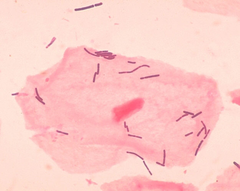Going with Your Gut – Scientists are Trying to Understanding the Role of Bacteria in the Ecosystem that is Your Body
Bacteria isn’t all bad, and some doctors and scientists worry that America’s penchant for hand sanitizers and antibacterial cleaners might be killing off too many of the bacteria we need to keep our bodies functioning at their best. A recent study indicated that children whose parents “cleaned” their dropped pacifiers by putting it in their own mouths were less likely to develop allergies than those whose parents used tap water to clean it. Researchers concluded that parents strengthen their children’s immune systems when they share their bacteria with their young children.
In a recent New York Times Magazine cover story, Michael Pollan explored research that reveals the value of the microbes that live on our skin and in our digestive system. The life cycle of a bacterium is so much shorter that they can quickly adapt and mutate and reproduce in response to what we do – or do not – put into our digestive tract. It’s not always clear which bacteria are beneficial and which are not, but research the world over shows that bacterial diversity is better, and that overuse of antibiotics and antibacterial cleaners can diminish that diversity by killing off all bacteria and killing the good with the bad.
The Human Food Project (HFP) has set out to understand that bacterial diversity. The project focuses on the anthropology of microbes on the premise that “we are vessels to a vast microbial ecosystem [that] is radically altering our basic understanding of medicine, nutrition, public health and the very scientific foundation of what makes us sick.”
How do you launch a broad study of human gut microbes? Take samples. Lots of them. HFP’s American Gut project seeks volunteers who are willing to give samples and submit them to the project to be analyzed. What you get back is a list of the bacteria they find in samples taken from your skin, saliva and gut (yep – poop). Unfortunately, this is self-funded science which means that, until they get more corporate sponsors, it’s not free. The way it works now, the more you donate (it starts at $99) the more people in your household (dogs, too) can be tested and the more detailed your involvement in the study. If you want to see how many people are participating in your area, check out their Google map.
In the meantime, Pollan pressed scientists to give him advice about what he can do now to act as a good host to his resident bacteria. They cautioned they don’t have enough evidence to say for sure how we can manage our own bacteria but they did allow that they’ve made few changes in their lives based on their own experience, and it’s pretty straightforward:
- eat a diet that includes whole grains and plenty of fresh, uncooked fruits and vegetables
- grow as many of those fruits and vegetables yourself as you can, minimizing the use of pesticides
- replenish the bacteria that is proven to be beneficial (lactobacillus bulgaricus) by eating fermented foods like yogurt, kimchi and sauerkraut
- eat fewer processed (fast) foods that don’t contain any of the nutrients a healthy gut requires
- get dirty – work in that garden, pet your dog, compost your food, and when you clean up, plain soap and water is just fine.



Reblogged this on LettersHead and commented:
Seriously, unless you are in a hospital or a politician shaking hands all day long, you don’t need antibacterial soap or hand sanitizer. It’s din more harm than good.